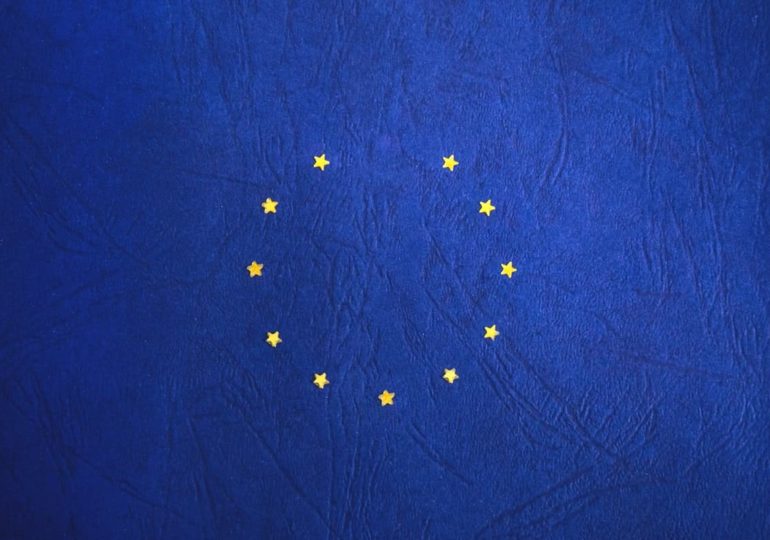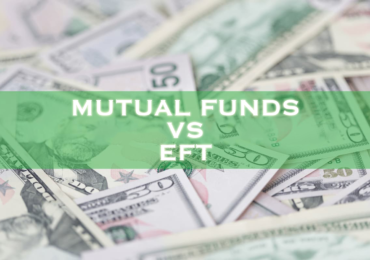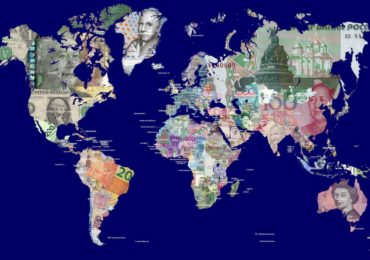In the past couple of weeks, the bookies’ odds on a no deal Brexit have drastically shortened, and the government has stepped up its no deal preparations. So, with a no deal Brexit looking increasingly likely by the day, we felt like it was worth looking at whether the UK is prepared for a no deal. So, before we dive headfirst into the UK’s no deal preparation, perhaps we should say that ultimately no one’s totally sure what will happen in an event of a no deal. A lot depends on things that no one can be sure of such as:
- Whether the EU and UK will strike many deals in between
- How the markets will react
- What tariff schedules the EU and UK will apply just to name a few things
Because of the nature of this subject, anything we say should be taken with a pinch of salt. But that being said, let’s get into it. Recently, Boris Johnson and Sajid Javid announced that they spent £2.1 billion on no deal preparations, despite Johnson continuing to claim that it’s only a one in a million chance of happening. This additional funding brings the total amount spent on no deal preparations, in 2019 to £6.3 billion, with an additional £26 billion being spent by the Treasury as an emergency no deal fund.
So, what is this money actually being spent on? Well, only about £1 billion is going to be spent before the 31st of October. With the other billions being spent trying to pay for any cracks that appear after a no deal. The money is primarily being spent on three things according to the government.
- Roughly £400 million is going to be spent on stockpiling essential medical supplies
- An estimated £250 million is going to be spent helping businesses deal with the effects of a no deal Brexit.
- The final £350 million will be spent hiring and training 500 more border officials and customs agents to help with the increased administrative work.
Although we’re not entirely sure how it’s going to work, border officials take a minimum of a couple of years to train. So how the government is going to find 500 border officials in the next couple of months, we have no idea. But hey, this isn’t the only hiring issue which the government has had. Back in 2018, the Treasury estimated that they need about 5300 new officials and about £250 million to deal with the increased administrative costs of ‘no deal’. When pushed on this a couple of days ago, Rishi Semak, the newly appointed Chief Secretary of the Treasury wouldn’t say how many people were successfully hired, so we’re guessing it is probably not a comforting figure.
You might be asking why the government needs so many more officials for a no deal? Well, the whole story is stupidly complicated, and really quite boring. But essentially, once the UK starts trading on the WTO (World Trade Organization) terms of the EU, it’s going to have to apply tariffs on many goods, which weren’t actually affected by tariffs before the 31st of October. So, you might now be asking why the UK doesn’t just keep letting goods in tariff free as it does now. Well, this is because unless the UK and EU agree to a GATT 24 transition period, which is really quite unlikely, the UK would have to let basically everything through tariff free.
This is because of the most fundamental part of WTO legislation (the most favoured nation principle as described in GATT article one). Which basically states unless the UK has a bespoke trade deal with a country, it has to apply the same tax to all countries. It can apply nice low tariffs to the EU and then use high ones on China. Given that most of the UK’s trade deals have been negotiated by the EU on the UK’s behalf, the UK won’t have bespoke trade deals with many countries. Some of these EU trade deals have been rolled over become UK specific, but not many.
Back in 2017, Liam Fox said that the UK aims to have 40 of the 69 EU trade deals rolled over. At the moment, only 12 have been agreed to, and they’re not exactly huge trading partners representing less than 20% of the UK trade deal enabled trains.
They are:
- Chile
- Norway and Iceland
- Caribbean countries
- Central America
- Andean countries
- Switzerland
- The Faroe Islands
- Eastern and Southern Africa
- The Pacific Islands
- Liechtenstein
- Israel
- The Palestinian Authority
In fact, some countries like Canada have actually rejected the UK’s offer to roll over the EU trade deals, and trade experts have expressed concerns that the trade deals which have been rolled over have been done too hastily, and in many cases are incomplete.
Essentially what all this means is that if the UK wants to allow zero-tariff trade on EU goods, they would have to allow zero-tariff access to basically all other countries. This will put UK businesses at risk of being undercut by cheaper foreign produce overnight. The government has made it clear that they don’t plan on doing this and that they’ll apply tariffs to a certain number of goods coming in from the EU.
A provisional tariff schedule was published in March which suggested letting 87% of goods enter the UK tariff-free, but the government has made clear this could change depending on circumstances. Equally, the EU has said that they’ll have to apply checks to maintain the integrity of the single market, which is why EU countries like The Netherlands, France and the Republic of Ireland have also begun hiring more customs officials. Well, the average EU tariff is not particularly high at only 2.8% for Non Agricultural products. There’s a massive range, for example, dairy products from outside the EU are subjects of an average 35% tariff, which will hit UK dairy farmers immediately beyond just the cost of businesses, where are these checks actually going to happen?
Well, there are two main borders between the UK and the EU:
- The first is the border between the South of England and France.
- The other is the infamous Irish border.
But first, let us take a look at another border, which is of importance to the subject.
The Anglo-French border and a No Deal Brexit
This is how about 30% of UK exports go to the EU; they go through the Channel Tunnel. Some trade does happen at other ports like Rotterdam and Dunkirk, the Channel Tunnel which goes from Dover to Calais is the most vital. The EU and France more specifically have made clear there will be checks at Calais in the event of no deal. The French have even implemented an electronic recognition system for haulage trucks and built an overflow parking lot. The UK Government has also done some prep as well.
In the past, when the Dover Calais crossing wasn’t working, say because of strikes or technical issues, the UK government would trigger a thing called Operation stack. Basically, because the Channel Tunnel manages about 4500 haulage trucks a day, if it’s not working, there’s a massive buildup of traffic. To keep everything moving relatively smoothly, operation stack basically turns part of the M20 motorway, which goes between London and Dover into a car park where lorries can sit until the delay is cleared up. The government is actually expecting even more significant delays in the event of a no deal. So, they came up with a bigger, more extreme sounding operation, “Operation Brock”. Operation Brock is basically the same as Operation stack but also turns a nearby airport Manston airport into another parking lot. So why is the government expecting huge delays? Well, for the same reason, they’re spending £250 million of that 1 billion we mentioned earlier on supporting businesses, because businesses to be blunt, just aren’t ready to trade goods with the EU and handle the event of a no deal. Any business needs an EORI certificate. Of the 250,000 businesses that need to do this, only 69,000 have done so according to HMRC’s latest figures.
If businesses are carrying complicated cargo, it’s recommended they also fill out online transactional simplified procedures or TSP’s in order to avoid delays. Only about 17,500 of the 250,000 businesses have actually done this. The reason for this huge problem is that even if you run a business, which has filled out these forms correctly, all the other businesses use the same roads. This means the trucks carrying goods from businesses that haven’t filled out the forms correctly, are going to hold up everyone, including all the businesses have filled out the correct forms.
And given the majority of businesses have done this so far, there could be some pretty severe delays. So ultimately, this could be a major disaster or a miracle outcome, but it’s not anti-Brexit bias to say at the moment, it’s going to be very logistically difficult, to say the least.
Then there is the other border at Northern Ireland, which is part of the UK and the Republic of Ireland (which is part of the EU). Historically, this has been a very contentious border for many reasons. There are concerns that any border infrastructure could very likely reignite violence on the border. Neither the EU or UK have said that they plan on putting any border infrastructure in place there. To be honest, even if they wanted to who’s going to risk their lives to enforce tariff schedules?
In the event of a no deal Brexit, no one knows what’s going to happen here. If nothing happens, the integrity of the single market is undermined. If someone tries to put up a border, they risk a violent backlash. So, this is one of the big question marks in a no deal outcome, which no one has been able to come up with the answer to yet. While this might sound a bit doom and gloom and complicated, we should say that there’s a chance it might not end up working out this way.
As we said at the start, no one’s quite sure how everything will pan out, what will be agreed for the Irish border, how markets will end up reacting, or whether the EU and UK will be able to create some sort of last-minute deals.
Also, the EU has implemented 16 unilateral measures and counting in order to try and keep everything running smoothly. And although they said they weren’t, there’s a chance they might agree to some sort of last-minute bilateral agreement with the UK in order to mitigate some of the worst impacts of a no deal Brexit. Equally, there are some things the UK could do alone although they are a bit behind schedule already. Out of the 13 sections of primary legislation, the UK needs to pass by the 31st of October only five have been passed so far, and some of these aren’t even through the House of Lords yet.
Of the 60 or so statutory implements, only an estimated 100 have been passed, and the remaining 500 have not been allocated parliamentary time yet. This is another reason why prorogation is so dangerous. Parliament still needs to pass a whole load of legislation if it wants an even relatively smooth Brexit, and if parliament is not in session, there’s no way they can do that.
Anyway, that’s our take on whether the UK is ready for a no deal.
Currency Rate Decline
With regards to currency, the pound sterling has consistently been on a decline since the results from the poll became clear on the 23rd of June 2016. With a sharp drop and numerous up and down slumps, the pound sterling has found itself 15% lower than the levels before the polls. The current decline in the currency is still at a rise and with all efforts put into the probable implementation of a no-deal Brexit, it is looking like the UK is heading for an obvious recession that is if the no-deal Brexit happens.
It is obvious that that the mention of the no-deal Brexit alone seems to cause steers in the minds of many, a panic that is not good for any country and economy. Ever since the initial fall of the pound sterling, it has been on a low, leaving questions on the minds of many citizens, Is it worth it?
Bottom Line
The standpoint of the whole thing as highlighted earlier is still not known, coupled with the fact that the issue with a no-deal Brexit has a lot of problems which have not yet been tackled. The technicality of a no-deal Brexit if implemented, would leave the UK facing a lot more issues, especially with looming challenges with the new policy.
The direction of the no-deal Brexit, as well as the UK, leaves us with a lot of unanswered questions and uncertainty everywhere. What are your thoughts?












This Article is so informative. One thing i have to say is that this no-deal brexit is really going to cost the entirety of the UK and even the EU a lot.
So much information here……………